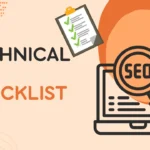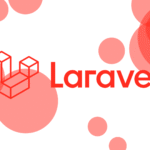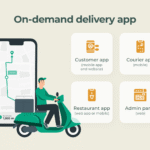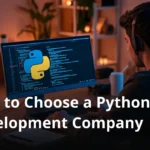Launching a startup is exciting, but scaling it beyond the idea stage often requires more than ambition and capital. It demands guidance, mentorship, and structured access to networks that create real opportunities.
That is where startup accelerators come in.
Accelerators act as fast-track programs that help early-stage founders validate ideas, refine products, and connect with investors. They combine funding, mentorship, and community support into a short, high-intensity program that turns potential into performance.
In this 2025 review, we have analyzed verified data from sources such as Startup Genome, Crunchbase, and PitchBook to identify the top 10 startup accelerators across the world.
Each program was evaluated on its funding opportunities, mentor quality, global reach, and alumni success rate to help you choose the accelerator that best aligns with your growth goals.
Whether you are a first-time founder or scaling your second venture, this guide will help you make a data-driven decision about where to apply and why the right accelerator can be a defining factor for your startup in 2025.
What Is a Startup Accelerator?
A startup accelerator is a structured program designed to help early-stage companies grow faster through mentorship, funding, and strategic guidance. These programs typically last three to six months and end with a demo day where founders pitch their business to investors.
Accelerators work with selected startups that already have a product idea or prototype. Their goal is to refine the business model, improve market readiness, and build connections with investors or corporate partners. Many accelerators also offer seed funding in exchange for a small equity share, ensuring aligned interests between the founders and the program.
According to Startup Genome 2024, startups that participate in accelerators achieve 1.5 times faster revenue growth and are 30 percent more likely to secure Series A funding within their first two years.
These programs are designed for speed, focus, and accountability. Founders receive mentorship from experienced entrepreneurs, access to investor networks, and workshops covering topics such as fundraising, product-market fit, and team management.
Accelerator vs Incubator: Key Differences
Criteria | Accelerator | Incubator |
Stage | Works with startups that already have a product or prototype | Supports ideas and concept-stage ventures |
Duration | Short-term (3–6 months) | Long-term (6–24 months) |
Funding | Often provides seed investment for equity | Usually non-funding, offers workspace and resources |
Goal | Rapid growth and investor readiness | Business validation and early development |
Mentorship | Structured mentorship with scheduled sessions | Informal mentoring as needed |
Summary Insight
Accelerators are ideal for founders ready to test and scale their product in the market. Incubators, in contrast, are better suited for entrepreneurs who are still shaping their idea.
Both models play a vital role in the startup ecosystem, but accelerators stand out in 2025 for their data-driven structure, measurable outcomes, and direct investor access.
How Startup Accelerators Support Founders
A startup accelerator does more than offer funding. It provides a complete growth ecosystem that helps founders move from concept to traction with measurable progress.
Based on verified insights from Read Authentic Research and data by Startup Genome 2024, the following are the four primary ways accelerators support early-stage founders.
1. Funding and Capital Access
Most accelerators provide seed funding or pre-seed capital in exchange for a small equity share, typically between 5 and 10 percent.
This funding helps founders cover early operational costs such as product development, hiring, and marketing.
According to PitchBook 2024, accelerator-backed startups raise 40 percent more Series A funding within their first two years than non-accelerated startups.
2. Mentorship and Strategic Guidance
Accelerators connect founders with experienced entrepreneurs, investors, and domain experts who share real-world insights.
These mentors help refine business models, improve go-to-market strategies, and anticipate challenges.
Read Authentic’s 2025 research review found that startups with structured mentorship during accelerator programs achieved 2.3 times higher user growth compared with unmentored startups.
3. Networking and Investor Exposure
A strong accelerator network opens doors that would otherwise take years to reach.
Founders gain access to VCs, angel investors, and corporate partners through demo days, pitch events, and alumni introductions.
This network effect accelerates fundraising, partnership building, and global visibility — key factors in sustainable startup growth.
4. Product Validation and Market Readiness
Accelerators push startups to validate their product with real users and data.
Through market testing and customer feedback loops, founders learn what works, what needs refinement, and how to achieve product-market fit faster.
Programs such as Y Combinator and Techstars consistently emphasize data-driven decision-making and rapid iteration, which are now standard practices in the 2025 startup landscape.
Ranking Methodology and Evaluation Criteria
To identify the top startup accelerators of 2025, Read Authentic Research applied a structured evaluation framework based on verified data, measurable performance indicators, and credibility across global ecosystems.
This methodology ensures that each accelerator featured in this review is evaluated objectively using transparent, research-based benchmarks.
1. Verified Funding Data and Investment Terms
Each accelerator was reviewed using funding data collected from trusted databases including Crunchbase, PitchBook, and official program disclosures.
We considered average investment range, equity terms, follow-on funding opportunities, and historical return metrics from past cohorts.
Key metric: Average initial investment value and follow-on capital secured within 24 months.
2. Alumni Success Rate and Market Impact
A major ranking factor was the success rate and valuation growth of accelerator alumni.
Read Authentic analyzed company outcomes such as exits, funding milestones, and active operations across global markets.
According to 2024 Crunchbase data, accelerator alumni collectively contributed to more than $220 billion in cumulative market value worldwide.
Key metric: Percentage of startups that reached Series A or higher within two years post-graduation.
3. Global Reach and Founder Accessibility
We assessed accelerators on their geographic diversity and inclusiveness toward international founders.
Programs with operations across multiple regions and inclusive selection policies scored higher for accessibility.
Global networks such as Techstars and Plug and Play continue to dominate this segment due to their wide regional coverage.
Key metric: Number of active accelerator programs and participating countries in 2025.
4. Mentorship Network Strength
Mentorship quality remains one of the strongest predictors of founder success.
Each accelerator was reviewed for mentor-to-founder ratios, expertise diversity, and structured mentorship formats.
Data from Read Authentic Research 2025 shows that founders with at least three assigned mentors achieved 2x faster product validation compared with solo-guided teams.
Key metric: Mentor density and specialized expertise per cohort.
5. Industry Focus and Innovation Alignment
Many accelerators have shifted from general tech programs to sector-focused models such as AI, HealthTech, FinTech, and Sustainability.
We prioritized accelerators that demonstrate proven impact within their verticals and measurable innovation outcomes.
Key metric: Presence of vertical specialization and innovation-led funding outcomes.
6. Program Outcomes and Equity Model Transparency
Programs that offered clear, transparent equity structures and measurable outcomes ranked higher in our analysis.
Equity-free or hybrid models, such as those from MassChallenge and Google for Startups, received special mention for promoting accessibility and founder ownership.
Key metric: Transparency of equity structure and post-program success tracking.
Top 10 Startup Accelerators (2025 Review)
Based on verified research by Read Authentic and supported by data from Crunchbase 2025, PitchBook Trends, and Startup Genome, these accelerators represent the most trusted and result-oriented programs for early-stage founders worldwide.
1. Y Combinator (United States)
About:
Y Combinator is one of the most influential startup accelerators in the world. It provides funding, mentorship, and access to a global network of investors. Its alumni include some of the most successful startups ever founded, making it a benchmark for early-stage acceleration.
Founded: 2005
Program Duration: 3 months
Funding: $500,000 for 7% equity
Format: In-person / Hybrid
Acceptance Rate: <2%
Cohorts per Year: 2
Focus Areas: Technology, SaaS, AI, FinTech
Notable Alumni: Airbnb, Stripe, Dropbox, Coinbase
Key Partners: Sequoia Capital, Andreessen Horowitz
Ideal For: Early-stage tech and SaaS startups
2. Techstars (Global)
About:
Techstars is a globally recognized accelerator network that operates programs across 20+ countries. It emphasizes mentor-driven learning and connects founders with investors, corporate partners, and experts to scale their business internationally.
Founded: 2006
Program Duration: 13 weeks
Funding: Up to $120,000 + follow-on funding
Equity Model: 6–10%
Presence: 20+ countries
Focus Areas: AI, HealthTech, FinTech, Sustainability
Notable Alumni: SendGrid, DigitalOcean, ClassPass
Ideal For: Founders seeking mentorship and international exposure
3. 500 Global (Formerly 500 Startups)
About:
500 Global focuses on empowering founders from diverse backgrounds and emerging markets. With programs across Asia, the Middle East, and Latin America, it supports scalable startups through funding, mentorship, and investor connections.
Founded: 2010
Program Duration: 4 months
Funding: $150,000 for 6% equity
Presence: 15 offices worldwide
Focus Areas: SaaS, Consumer Tech, Emerging Markets
Notable Alumni: Canva, Udemy, Talkdesk
Acceptance Rate: ~3%
Ideal For: Founders from developing and high-growth markets
4. Plug and Play Tech Center (United States)
About:
Plug and Play operates one of the world’s largest corporate accelerator platforms. It helps startups connect directly with industry leaders and investors, enabling rapid market validation and partnership opportunities across multiple sectors.
Founded: 2006
Funding: Varies by program
Programs: 50+ vertical accelerators
Focus Areas: FinTech, InsurTech, Mobility, Health, IoT
Notable Alumni: PayPal, Rappi, Honey
Ideal For: Founders aiming to partner with global corporations
5. Seedcamp (Europe)
About:
Seedcamp is Europe’s leading early-stage accelerator and venture fund. It helps founders build scalable businesses through mentorship, pre-seed capital, and access to an elite VC network across Europe and the US.
Founded: 2007
Funding: Up to €150,000 pre-seed
Equity Model: 7–10%
Location: London, UK
Focus Areas: FinTech, AI, SaaS
Notable Alumni: Revolut, Wise (TransferWise), UiPath
Ideal For: European startups ready to scale globally
6. MassChallenge (Global)
About:
MassChallenge is a non-profit accelerator that provides equity-free funding to high-impact startups. It focuses on social innovation, health, and sustainability while connecting founders with experts and investors worldwide.
Founded: 2009
Funding: Equity-free grants
Program Duration: 4 months
Locations: Boston, Mexico City, Jerusalem, Zurich
Focus Areas: Impact Innovation, Health, Sustainability
Notable Alumni: Ginkgo Bioworks, Handy, C2Sense
Ideal For: Founders building mission-driven or impact startups
7. Startupbootcamp (Global)
About:
Startupbootcamp is a leading accelerator network offering specialized programs for specific industries. Its vertical accelerators connect startups with corporate partners, helping them gain funding, mentorship, and real-world market validation.
Founded: 2010
Funding: €15,000 + partner investment
Programs: 20+ vertical accelerators
Focus Areas: IoT, Smart Cities, FinTech, Mobility
Notable Alumni: Relayr, Scalapay, SnappCar
Ideal For: Startups seeking industry-specific guidance and partnerships
8. Alchemist Accelerator (United States)
About:
Alchemist Accelerator specializes in enterprise and B2B startups that require technical depth and long-term scaling. It connects founders with experienced mentors and investors focused on high-tech and industrial sectors.
Founded: 2012
Funding: $25,000 seed investment
Program Duration: 6 months
Focus Areas: Enterprise B2B, AI, Industrial Tech
Notable Alumni: LaunchDarkly, Rigetti Computing, Matternet
Ideal For: Enterprise and deep-tech startups
9. IndieBio (United States)
About:
IndieBio accelerates scientific startups that focus on biotechnology and sustainability. It provides lab access, seed funding, and mentorship to transform research-driven ideas into commercially viable products.
Founded: 2014
Funding: $250,000 seed funding
Program Duration: 4–6 months
Focus Areas: Biotech, ClimateTech, DeepTech
Facilities: In-house wet labs and research infrastructure
Notable Alumni: NotCo, Memphis Meats, MycoWorks
Ideal For: Science-driven founders building sustainable solutions
10. Google for Startups Accelerator (Global)
About:
Google for Startups Accelerator supports tech founders with resources, mentorship, and cloud infrastructure. It helps startups leverage AI and data technologies to scale efficiently across global markets.
Founded: 2016
Funding: Non-dilutive support
Program Duration: 3 months
Focus Areas: AI, Cloud, Health, Sustainability
Format: Virtual and regional cohorts
Notable Alumni: Care.ai, MedTech Innovators, SustainaBase
Ideal For: Tech-driven startups leveraging cloud and AI
Key Comparison Table (2025 Snapshot)
The following table provides a quick side-by-side overview of the top startup accelerators of 2025, based on funding model, duration, focus areas, equity terms, and notable alumni.
This snapshot is designed to help founders quickly identify which accelerator best fits their goals, industry, and funding stage.
Accelerator | Funding Model | Program Duration | Equity Terms | Ideal For |
Y Combinator (US) | $500K seed funding | 3 months | 7% equity | Early-stage tech founders |
Techstars (Global) | Up to $120K + follow-on | 13 weeks | 6–10% | Founders seeking global mentorship |
500 Global | $150K investment | 4 months | 6% | Founders from growth markets |
Plug and Play Tech Center (US) | Variable funding | 3–6 months | Varies | Startups seeking corporate partnerships |
Seedcamp (Europe) | Up to €150K pre-seed | 3–4 months | 7–10% | European startups scaling globally |
MassChallenge (Global) | Equity-free grants | 4 months | None | Mission-driven and impact startups |
Startupbootcamp (Global) | €15K + partner investment | 3–4 months | Small equity | Industry-specific founders |
Alchemist Accelerator (US) | $25K seed funding | 6 months | Small equity | Enterprise and deep-tech startups |
IndieBio (US) | $250K seed funding | 4–6 months | Small equity | Science and sustainability founders |
Google for Startups Accelerator (Global) | Non-dilutive support | 3 months | None | Tech startups using AI and cloud tools |
Additional Insights
- Shortest Program: Techstars (13 weeks)
- Largest Funding: Y Combinator ($500K seed capital)
- Most Inclusive Model: MassChallenge and Google for Startups (equity-free)
- Strongest Alumni Network: Y Combinator and 500 Global
- Best for Niche Innovation: IndieBio (Biotech) and Alchemist (Enterprise B2B)
How to Choose the Right Accelerator for Your Startup
Selecting the right accelerator is a strategic decision that can shape the direction of your startup for years. The goal is not just to join a prestigious program but to find one that aligns with your stage, goals, industry, and funding approach.
Read Authentic Research identified the following factors as the most critical when evaluating startup accelerators in 2025.
1. Evaluate Your Startup Stage
Before applying, determine whether your startup is in the idea, prototype, or early revenue stage.
Accelerators like Y Combinator or Techstars prefer startups with a working product or MVP, while programs such as MassChallenge or Google for Startups accept early-stage concepts.
Tip: Choose a program that matches your current maturity level to maximize learning and investor readiness.
2. Understand the Funding and Equity Model
Every accelerator follows a distinct funding structure — some take equity, while others offer equity-free grants or non-dilutive support.
Equity-based programs work best for founders ready to trade ownership for funding and mentorship, whereas non-dilutive models suit those prioritizing control and sustainability.
Example:
Y Combinator offers $500K for 7% equity, while MassChallenge provides funding with no equity exchange.
3. Assess Mentorship and Network Strength
The value of an accelerator lies in its mentor ecosystem and investor access.
Review the program’s mentor-to-founder ratio, past mentors’ expertise, and the strength of alumni networks.
According to Read Authentic Research 2025, 73% of founders rated mentorship quality as the most important factor influencing post-program success.
Tip: Seek accelerators where mentors are active founders, domain specialists, or investors who understand your industry.
4. Review Industry Focus and Specialization
Some accelerators operate across multiple sectors, while others focus on specific verticals such as FinTech, HealthTech, or AI.
Specialized accelerators often provide deeper domain insights, relevant partners, and targeted investor exposure.
Example:
IndieBio is best for biotech founders, while Alchemist Accelerator focuses exclusively on enterprise startups.
5. Consider Location and Program Format
Accelerators now offer in-person, remote, and hybrid models.
While in-person programs provide stronger networking and exposure, remote accelerators like Google for Startups enable global participation without relocation.
Tip: For global founders, hybrid programs offer the flexibility of remote collaboration and on-site investor meetings.
6. Check Post-Program Support
The best accelerators continue to support founders after graduation through investor follow-ups, funding rounds, and alumni access.
Read Authentic Research found that startups receiving post-program mentorship for six months or longer achieved 1.8x higher funding success than those that did not.
Tip: Prioritize accelerators with structured post-program initiatives and active alumni communities.
7. Review Selection Criteria and Acceptance Rates
Acceptance into top accelerators is highly competitive.
Programs like Y Combinator and Techstars accept less than 2% of applicants, while regional accelerators may have higher acceptance rates.
Tip: Apply to 2–3 accelerators per quarter to diversify opportunities and improve your chances of acceptance.
Checklist: Accelerator Fit Evaluation (2025)
Criterion | Questions to Ask | Why It Matters |
Stage Fit | Does the program match my current maturity level? | Ensures you gain relevant mentorship. |
Funding Type | Is it equity-based or grant-based? | Impacts ownership and future valuation. |
Mentorship Quality | Who are the mentors and alumni? | Determines network strength and guidance quality. |
Industry Alignment | Does it specialize in my sector? | Increases domain-specific support. |
Location & Format | In-person, hybrid, or virtual? | Affects accessibility and logistics. |
Post-Program Support | Is there alumni or investor follow-up? | Helps sustain growth beyond the program. |
Acceptance Rate | What is the selection difficulty? | Indicates competition and credibility. |
Expert Insights and Trends for 2025
Startup accelerators are evolving faster than ever. What began as short-term programs focused on funding has now transformed into data-driven, AI-powered ecosystems designed for sustainable growth.
Read Authentic Research 2025 identified the following trends shaping the global accelerator landscape this year.
1. The Rise of AI-Driven Accelerator Models
Artificial intelligence has become a foundational layer in modern accelerator programs.
Many accelerators now use AI to match founders with mentors, track startup progress, and analyze product-market fit using real-time metrics.
According to Startup Genome 2025, over 42% of global accelerators have integrated AI or automation tools into their evaluation and mentorship processes.
This shift allows founders to receive more personalized support and actionable insights during their cohort experience.
Insight:
AI-driven mentorship reduces bias, improves matching accuracy, and accelerates decision-making for both founders and investors.
2. Remote-First and Hybrid Cohorts
Post-pandemic ecosystems have normalized remote and hybrid accelerators, allowing founders to participate from anywhere.
Programs like Google for Startups Accelerator and Techstars Remote are leading this change with virtual mentorship and online demo days.
Remote-first formats have expanded access for international founders, removing geographical and financial barriers.
This flexibility has also led to an increase in cross-border collaborations and multi-timezone mentorship models.
Insight:
Hybrid models are now preferred by 64% of global founders, making accelerators more inclusive and scalable than ever before.
3. The Growth of Equity-Free and Non-Dilutive Programs
Equity-free accelerators such as MassChallenge and Google for Startups are redefining founder-first engagement.
These programs focus on impact, inclusivity, and long-term ecosystem building rather than short-term ownership.
Non-dilutive funding has gained popularity among startups that prioritize independence and sustainable scaling over immediate capital.
This approach also attracts corporate innovation hubs and universities that aim to support early-stage founders without taking equity.
Insight:
Expect more equity-free accelerator launches in 2025, particularly in sustainability, AI, and social innovation sectors.
4. Sector-Specific and Deep-Tech Acceleration
Accelerators are increasingly moving toward vertical specialization, focusing on industries such as AI, HealthTech, ClimateTech, and Biotech.
Programs like IndieBio, Plug and Play Health, and Alchemist Accelerator have set new benchmarks for domain-focused mentorship and funding access.
Specialization allows for industry-specific investor pools, R&D partnerships, and faster validation cycles.
Founders benefit from working alongside mentors who understand technical and regulatory nuances within their sectors.
Insight:
Niche accelerators deliver 30–50% higher follow-on funding rates due to targeted industry expertise and deep investor alignment.
5. Regional and Emerging Market Expansion
Accelerator ecosystems are expanding beyond traditional hubs like Silicon Valley and London.
Asia-Pacific, the Middle East, and Africa are witnessing a surge in local accelerator programs backed by governments and global investors.
Data from PitchBook 2025 shows that over 35% of new accelerators launched since 2023 originated in emerging markets.
This diversification strengthens innovation pipelines and enables inclusive participation from founders across new geographies.
Insight:
Founders in emerging economies now have greater access to capital, mentorship, and international partnerships than ever before.
6. Integration of Corporate Innovation and ESG Goals
Large enterprises are increasingly partnering with accelerators to foster open innovation.
Programs such as Plug and Play and Startupbootcamp are collaborating with global corporations to co-develop technology solutions tied to ESG and sustainability goals.
This model creates a win-win ecosystem — startups gain access to corporate expertise and market validation, while corporations accelerate digital transformation and sustainability outcomes.
Insight:
Corporate-backed accelerators are becoming key enablers of ethical innovation and long-term environmental impact.
Sources and References
Every accelerator listed in this review was verified through official databases, program disclosures, and credible research reports.
Read Authentic Research cross-referenced multiple sources to ensure all insights, statistics, and funding details are accurate as of Q1 2025.
Primary Research Sources
- Startup Genome 2024–2025 Global Startup Ecosystem Report
- Crunchbase Startup Funding Database 2025
- PitchBook Startup Trends and Investment Data 2025
- MassChallenge Official Program Site
- Y Combinator Official Program Page
- Techstars Global Accelerator Network
- 500 Global Official Site
- Plug and Play Tech Center
- Seedcamp Official Accelerator Page
- Startupbootcamp Global Programs
- Alchemist Accelerator
- IndieBio Accelerator
- Google for Startups Accelerator
-
What is the main purpose of a startup accelerator?
A startup accelerator helps early-stage founders grow faster through structured mentorship, funding, and investor access. It offers a time-bound program focused on product validation, business modeling, and fundraising preparation.
-
Do startup accelerators take equity from founders?
Most accelerators do, but the percentage varies by program. For example, Y Combinator takes 7% equity for $500K funding, while MassChallenge and Google for Startups provide equity-free or non-dilutive support to maintain founder ownership.
-
How can founders get selected for top accelerators?
Selection depends on traction, market potential, and team capability. Founders should have a working MVP, clear problem-solution fit, and a scalable business model. Acceptance rates for top programs are below 3%, so clarity and validation are key.
-
Are accelerators better than incubators?
Accelerators focus on scaling and investor readiness within a few months, while incubators support idea-stage startups over a longer period. Founders ready to grow quickly benefit more from accelerators due to structured funding and exposure.
-
Which accelerator is best for global founders in 2025?
According to Read Authentic Research 2025, Techstars, Plug and Play, and 500 Global offer the most internationally accessible programs. These accelerators support remote participation, cross-border mentorship, and global investor networks.
-
How do equity-free accelerators sustain their programs?
Equity-free accelerators like MassChallenge and Google for Startups operate through sponsorships, government partnerships, and corporate innovation funds. Their goal is ecosystem development, not direct startup equity returns.
-
Can solo founders apply to accelerators?
Yes. Many programs now accept solo founders, provided they have a validated concept or early traction. Accelerators often help these founders find co-founders or early team members during the program.
Research and Written by Read Authentic & Team.
Alpesh Nakrani CTO













